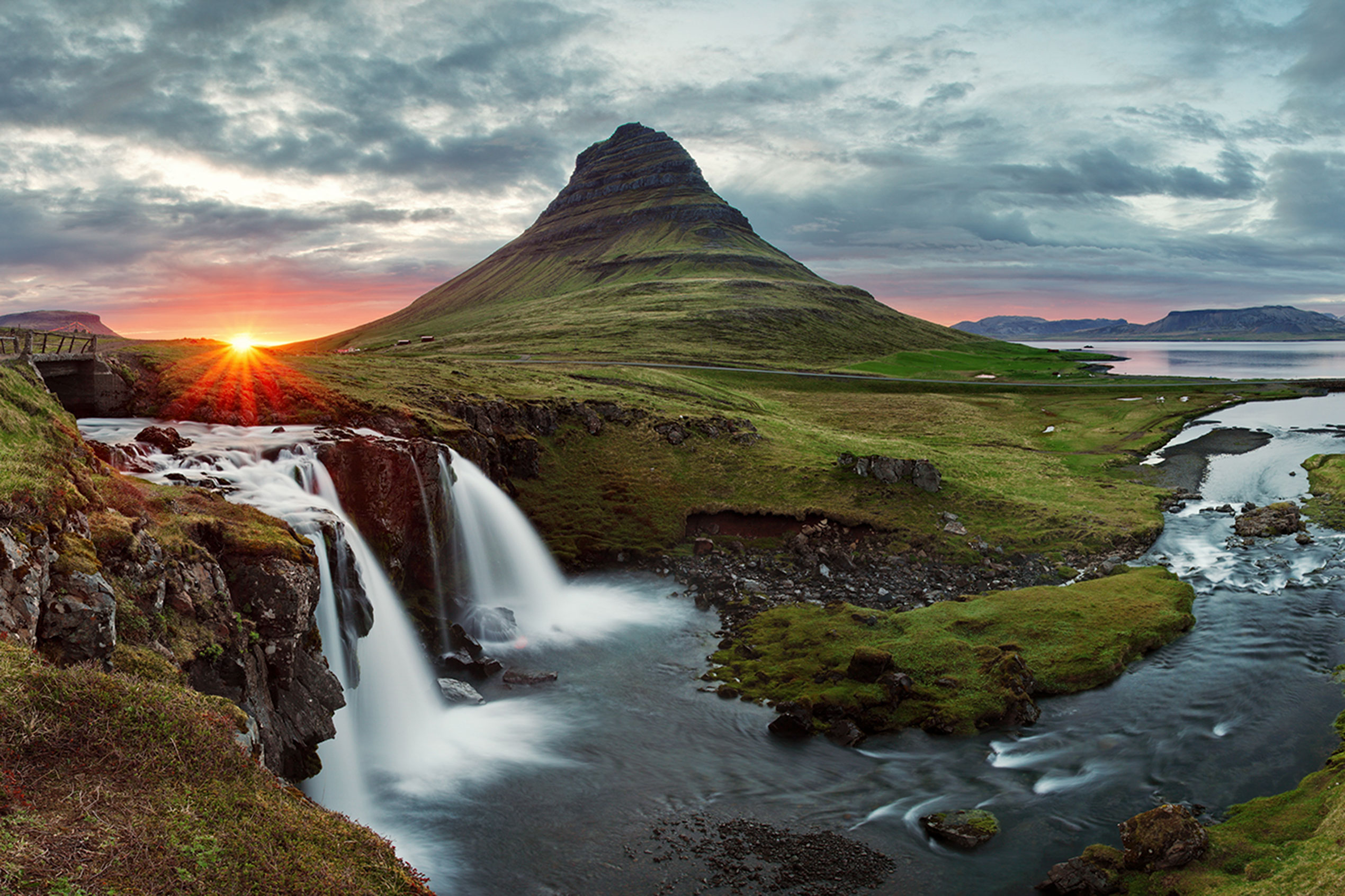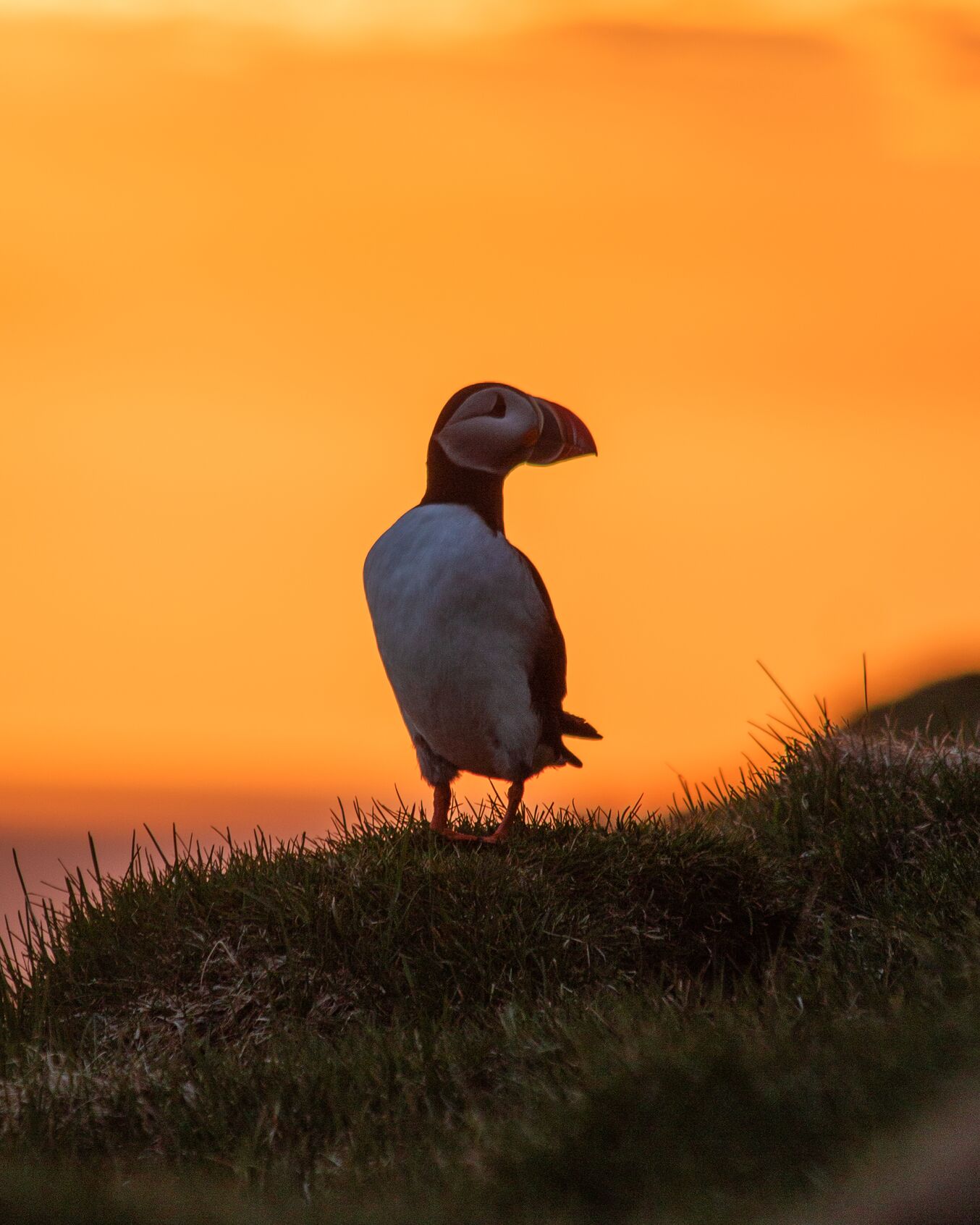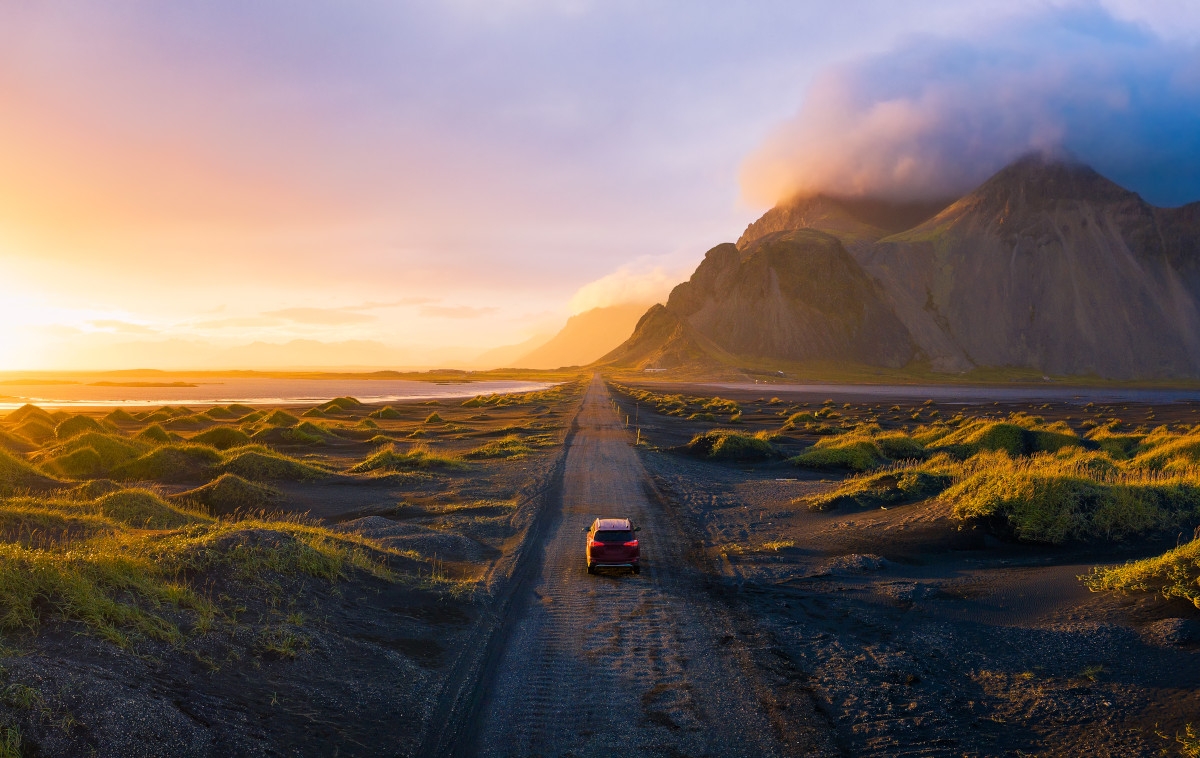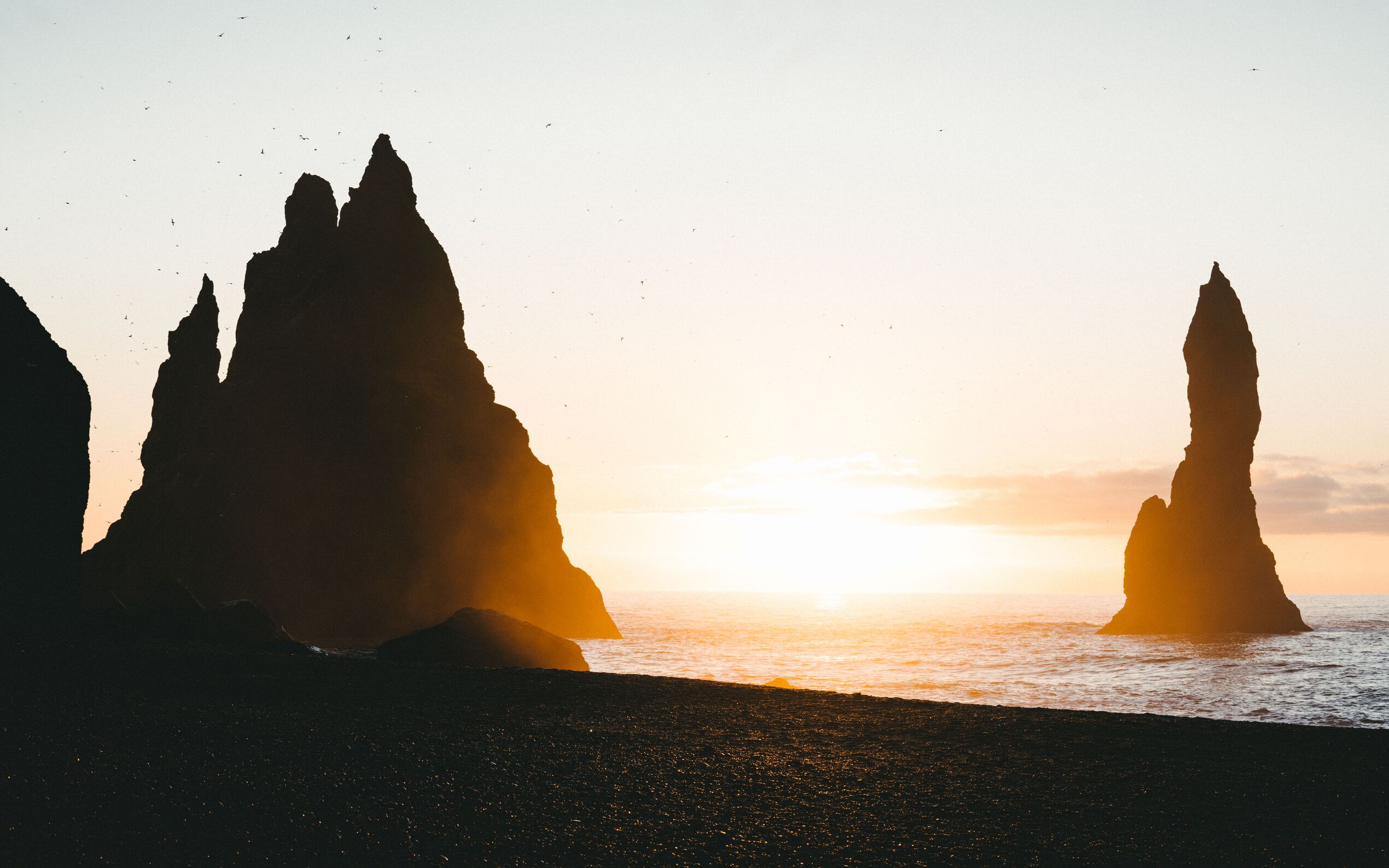The midnight sun: Iceland's 24-hour daylight
In Iceland in June, the sun extends a sincere (belated) apology for its winter disappearing act. The summertime reward is near-endless bright skies and 24 hours of sunlight in Iceland.
The sun’s apology is not so humble that it comes with genuine warmth – in the tropical sense – but as the daytime temperatures hopefully nudge the mid-teens (or mid-’60s Fahrenheit), and the late-evening skies take on a pinky-peach glow, winter’s gloom is generally forgiven.
The summer solstice in Iceland was traditionally a time of bounty in the lives of the Nordic nations and a cause for celebration. Be ready to enjoy a burst of energy and a crazy sense that time is immaterial (and also: pack a sleep mask!).

What is the midnight sun?
Iceland’s midnight sun is a natural phenomenon. It describes a time in the year when the sun doesn’t set, sitting above (or just near) the horizon for nearly 24 hours a day. The natural spectacle is experienced in the far north of the globe (above the Arctic Circle) and the far south (Antarctica), where areas can have continuous daylight for many months.
With Iceland’s northern position on the globe and proximity to the Arctic Circle, the midnight sun occurs for most of the summer.

When can I see the midnight sun in Iceland?
If you’re unsure of when in summer to make the trip to Iceland, you can find all the information you need about daylight hours below. The amount of daylight can vary by a few hours between the start of a month and the end of a month, so make sure you choose the right time of year to do and see what you want in Iceland.
The summer solstice, when the sun peaks and produces the longest day of the year, usually occurs on June 20 or 21.
On June 20 in 2024, sunrise in Reykjavík is at 2:55am; sunset occurs over 21 hours later at 12:03am. For 3 hours of twilight, the sun sits just below the horizon and delivers lingering natural light.
(Fun fact, for contrast: December’s winter solstice offers a mere 4 hours and 7 minutes of daylight in the Icelandic capital.)
The further north you travel in Iceland, of course, the more prolonged the summer light. Akureyri boasts 23.5 hours of light on June 20; Ísafjörður has 24-hour brightness, and the small northern island of Grímsey (the only part of Iceland within the Arctic Circle) also has perpetual light.
In the table below, you get an idea of how the daylight hours change in Reykjavík throughout the summer months. You'll find more useful details on the website timeanddate.com.
Reykjavík's midnight sun*
| Date | Sunrise | Sunset |
|---|---|---|
| May 1 | 4:58am | 9:53pm |
| May 10 | 4:28am | 10:22pm |
| May 20 | 3:55am | 10:55pm |
| May 30 | 3:26am | 11:26pm |
| June 10 | 3:03am | 11:53pm |
| June 20 Summer solstice | 2:55am | 12:03am |
| June 30 | 3:04am | 11:56pm |
| July 10 | 3:28am | 11:36pm |
| July 20 | 3:57am | 11:08pm |
| July 30 | 4:29am | 10:36pm |
| August 10 | 5:04am | 9:59pm |
| August 20 | 5:35am | 9:24pm |
| August 30 | 6:05am | 8:48pm |
*The times listed in this table are for 2024. In other years, the times may vary slightly (by a matter of one or two minutes, at most).
![]()
Things to do during Iceland's longest days
For 6 weeks either side of the June 21 summer solstice in Iceland, you’ll experience bright nights. The sun lingers long and low on the horizon like a welcome dinner guest. Even after its sunset departure a rosy afterglow remains. Here's how you can make the most out of visiting the marvelous midnight sun in Iceland with our top tips.
Try an adventure tour
Make your own fun hiking, golfing, fishing or camping. For the simplest solstice pleasure, take a midnight stroll to see the sun dip just below the horizon – and if you walk for long enough – bounce back up before you return.
Try a hiking day tour to be guided by a local expert to glaciers and waterfalls. If hiking isn't for you, book an evening tour to whale-watch, bird-watch or horse-ride into the night.
Experience nature
Hot tubs and springs, or geothermal spas like the Blue Lagoon and Sky Lagoon, offer delicious warmth and may help to edge insomniacs closer to sleep.
Waterfalls make great backdrops for the sunlight. Cascades such as Seljalandsfoss or Skógafoss are idyllic spots to marvel at the wonders of nature and capture great photos.
Take a drive
Chase the sun with a day or night drive. Hire a car with a self-drive tour and take in the sights at your own pace. With better, warmer weather, the road conditions are far easier in the summer, so it’s one of the best ways to get around.

Events in Iceland during the midnight sun
Midsummer festivals make prime use of the longest days. Here are some of the best places to see the midnight sun in Iceland that you don’t want to miss.
Midnight Sun Run
In Reykjavík, you can compete in the Midnight Sun Run. This is your chance to run through the night whilst still enjoying full daylight. Choose from a 5km, 10km or half-marathon distance and get ready for the start line!
Arctic Open golf tournament
If you’re in the North, you can tee off at the Arctic Open golf tournament in Akureyri. This international event happens annually is a 36-hole tournament over 2 days.
Solstice Festival
Take a short flight from Akureyri or ferry to Grímsey island to experience the Solstice Festival within the Arctic Circle. Join in the family-friendly fun with live music, a seafood buffet, and an annual ball.

Visit Iceland
Thinking of heading to see the midnight sun in Reykjavík for yourself? We offer flights to Iceland from UK destinations all year round.
Already booked your trips to see this year's summer solstice in Iceland? Take a look at our range of tours and holiday packages to make the most of those long summer days.